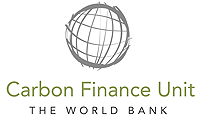Overview
The National Waste Management Agency of Tunisia (ANGED) has implemented a gas recovery and flaring project at the Djebel Chekir landfill. The objective of the project activity was to generate greenhouse gas GHG emission reductions while serving sustainable development purposes, and providing additional resources to environment protection in Tunisia.
Djebel Chekir landfill is located close to Tunis Capital, and is the first and largest controlled landfill of its kind in Tunisia. The landfill was put into operation in 1999. Up to 2005, the landfill received about 4.2 Million tons of waste in Cells 1, 2 and 3, and 3.5 additional million tons of waste have been landfilled over the period 2006-2010, in Cells 4 and 5. In 2018, the landfill was still open (Cell 6). In 2017, it received approximately 900,000 tons of waste. There is no expected closure date as no other site has been identified yet to take over waste disposal from Greater Tunis Capital.
The purpose of the project activity was to implement a landfill gas recovery and flaring system in order to reduce CH4 emissions for the benefit of global climate, and thus to generate Certified Emissions Reductions CERs. The landfill gas recovery and flaring system was financed by the National Waste Management Agency (ANGED), and operated by another private contractor. Greenhouse emission reductions have resulted from the combustion of the recovered methane contained in the landfill gas. It is estimated that this project has generated 3,696,644 tons of CO2 equivalent within a 10-year period (January 2007-December 2016), i.e. an annual average of 369,664 tCO2e during the crediting period. In the baseline scenario, no landfill gas is recovered and destroyed in the landfill and CH4 is freely released in the atmosphere.
Benefits
The project has had a significant contribution to sustainable development.
- First of all, the project activity has demonstrated, for the first time, the application of a world standard methane capture system in Tunisia, and has allowed for replicating such experience in the country.
- Socio-economic potential benefits have included the development of endogenous capacities to better manage landfilling operations, the development of a number of employment opportunities in various infrastructure works involved: wells building, piping network, management and monitoring of the system, etc.
- By recovering the landfill gas, it has also contributed to reduction of pollution, and thus, limitation of the landfill impact by preserving air quality, within the neighboring human establishments. In addition, the project has rehabilitated the leachate management in Cells 1, 2 and 3, and has installed appropriate leachate management practices in Cells 4 and 5.
- In doing so, the project activity has reduced the impact of the landfill on the soil and on ground water resources, and thus, preserved agricultural production and ensured population safety.
- Furthermore, the project has contributed on voluntary basis to the National Solid Waste Management Program, by allocating 25% of the ERs revenues to rehabilitate a number of existing dumps. By preventing these dumps continuously impacting soils, groundwater resources, air quality and public health, the financial resources provided by the project have restored the ecological equilibrium in the targeted areas and have encouraged human economic and social activities in the surrounding areas, all of which have effectively contributed to sustainable development.
- The project has also provided new foreign currency resources for Tunisia and thus, improved the profitably of the waste sector.
- The project has ensured high standard practices in waste management in Tunisia, and thus, contributed to sustainable development.
